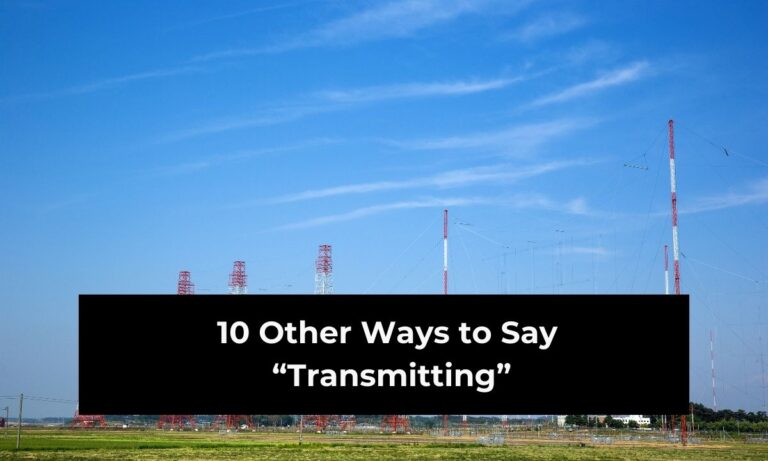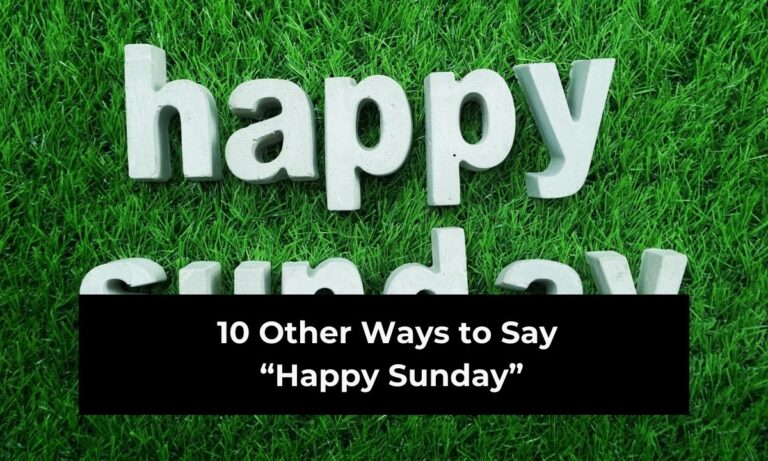Have you ever been in a situation where saying “wholeheartedly” just didn’t feel like the right fit? Maybe you were writing a heartfelt thank-you note, giving a toast at a special event, or crafting a professional email. While “wholeheartedly” is a beautiful word that conveys sincerity, passion, and genuine intent, sometimes you want an alternative expression that feels fresher, more personal, or better suited to your voice.
Words are powerful. They shape the way people receive your message and how it lingers in their minds. When you tell someone you support them “wholeheartedly,” you’re saying that you are giving your full commitment and authentic approval. But let’s face it—using the same word over and over can feel repetitive, or even a little flat. Finding creative alternatives helps you communicate in a way that feels more alive and true to your personality.
That’s why exploring different ways to say “wholeheartedly” can be so useful. Whether you’re writing something emotional, speaking in public, or simply trying to express deep agreement in conversation, the right word can make all the difference. Choosing a synonym or phrase that resonates more closely with your style not only makes your words stand out but also makes the person on the receiving end feel more seen and understood.

In this article, you’ll discover 12 unique alternatives to “wholeheartedly.” Each one carries its own tone, nuance, and level of intensity. I’ll walk you through what they mean, when to use them, and how they can elevate your communication. By the end, you’ll have a variety of choices to lean on—whether you’re aiming for warmth, formality, or passion.
Let’s dive into these fresh and inspiring ways to say “wholeheartedly.”
1. With All My Heart
When you say “with all my heart,” you’re expressing the deepest form of sincerity and love. This phrase is often used in personal, emotional settings, like when you’re speaking to family, close friends, or a partner. It conveys warmth, honesty, and an emotional bond that goes beyond casual words.
You can use it in moments of gratitude, such as when thanking someone for their kindness, or in moments of affection when declaring love. For example: “I support you with all my heart” or “I’m thankful with all my heart for your generosity.”
This phrase works beautifully in spoken conversations, letters, and even formal speeches. Unlike “wholeheartedly,” which can feel slightly formal, “with all my heart” leans into tenderness. It’s particularly effective when you want to emphasize that your words come from a place of emotional truth.
It’s also versatile—it can be used in romantic contexts, friendships, and even professional ones if you want to add a touch of humanity. Just make sure the tone matches the situation. When chosen well, this phrase resonates deeply with the listener and makes your sincerity unmistakable.
2. Truly and Sincerely
If you want a polished yet warm alternative, “truly and sincerely” is an excellent option. It carries a tone of honesty and integrity without being overly dramatic. This makes it especially useful in professional writing or formal speeches where you want to emphasize your commitment without sounding overly emotional.
For instance, you might say: “I truly and sincerely believe in your vision” or “I truly and sincerely appreciate your guidance.” These phrases assure the listener that your words are authentic and that you’re not simply being polite.
Unlike “with all my heart,” this phrase feels more measured. It suggests that you’ve thought carefully about your words and that your commitment is deliberate. That’s why it works well in contexts where credibility and trust matter—such as in the workplace or when supporting a friend through a serious decision.
The strength of this phrase lies in its clarity. It strips away unnecessary flourish and gets to the core of genuine intention. If you’re aiming to communicate reliability, this option can be a perfect replacement for “wholeheartedly.”
3. Without Reservation
“Without reservation” is a powerful expression that shows you’re fully committed with no hesitation or doubts. It’s a great way to say “wholeheartedly” when you want to emphasize total support or agreement.
For example, you could say: “I recommend this product without reservation” or “I support your decision without reservation.” This phrase highlights the absence of second thoughts, making your stance firm and convincing.
It’s especially effective in professional, persuasive, or formal situations. For instance, in business recommendations, testimonials, or even in leadership settings, this phrase gives weight to your message. It portrays you as someone who doesn’t just agree passively but stands firmly behind what you’re saying.
Compared to softer alternatives, “without reservation” is bold and direct. It assures your audience that your commitment is complete, leaving no room for doubt. If you want to inspire confidence, this phrase is an excellent choice.
4. From the Bottom of My Heart
This phrase carries a deeply emotional and heartfelt tone. When you say something “from the bottom of my heart,” you’re emphasizing genuine gratitude, love, or compassion. It’s a personal and intimate expression, often reserved for close relationships or deeply meaningful moments.
For example: “Thank you from the bottom of my heart for always being there” or “I apologize from the bottom of my heart.” In both cases, the phrase amplifies sincerity, showing that your emotions run deep.
Unlike “wholeheartedly,” which can sometimes sound formal or structured, this alternative is warm and human. It softens your message and helps it connect emotionally with the listener. It’s particularly useful in emotional writing, speeches, or moments when you want to leave a lasting impression of sincerity.
If you’re looking to create a heartfelt connection, this phrase works wonders. It reminds people that your words aren’t surface-level—they’re rooted in genuine feeling.
5. Absolutely
Sometimes, simplicity says it best. “Absolutely” is a crisp, confident word that works perfectly when you want to replace “wholeheartedly” in everyday conversations. It communicates firm agreement, strong support, and certainty—all in one word.
For example, you might say: “I absolutely agree with your idea” or “I absolutely support your decision.” In these contexts, the word leaves no doubt about your stance.
“Absolutely” is versatile. It fits casual chats, professional settings, and even public speaking. It has a sharp, confident tone that makes it memorable without being over the top. It’s also short, which means it adds impact without slowing down your speech or writing.
If you want something modern, fresh, and easy to use, “absolutely” is one of the best alternatives. It may not carry the emotional depth of phrases like “with all my heart,” but it shines when you want clear, confident affirmation.
6. Completely
Another simple yet impactful option is “completely.” This word emphasizes the idea of giving your full attention, energy, or agreement to something. It’s a great replacement for “wholeheartedly” when you want to stress totality.
For instance, you could say: “I completely understand your perspective” or “I completely support this plan.” This word highlights the idea of being fully on board without hesitation.
“Completely” works well across both casual and professional conversations. Its strength lies in its straightforwardness—there’s no ambiguity, no room for misinterpretation. It makes your stance crystal clear.
While it may not have the poetic flair of “from the bottom of my heart,” it’s highly effective in everyday language. If your goal is to sound genuine, supportive, and unambiguous, “completely” is a perfect substitute.
7. Genuinely
“Genuinely” is a warm, human-centered alternative that focuses on authenticity. It’s a word that conveys sincerity in a softer, approachable way.
For example: “I genuinely appreciate your help” or “I genuinely believe you can achieve this.” In both cases, it reassures the listener that your words aren’t just politeness—they’re rooted in truth.
This alternative is ideal when you want to balance formality with friendliness. It avoids sounding overly dramatic but still emphasizes depth. It works beautifully in personal letters, casual conversations, or even professional settings where warmth matters.
Compared to “wholeheartedly,” which can sound a little stiff, “genuinely” feels more conversational. It’s like opening a small window into your sincerity, showing the other person that your words are authentic.
If your communication style leans toward empathy and warmth, this is a word you’ll want to keep in your toolkit.
8. Faithfully
“Faithfully” carries a slightly formal tone and is often used in closing phrases like “yours faithfully.” However, it also serves as a strong alternative to “wholeheartedly” when you want to emphasize loyalty and commitment.
For example: “I will faithfully support this cause” or “She stood by him faithfully through challenges.” The word implies steadfast dedication and reliability, making it especially powerful in situations where trust and loyalty matter.
This alternative shines in formal writing, vows, or long-term commitments. It conveys more than just agreement—it speaks to ongoing support and consistency.
If you’re looking for a word that expresses loyalty, strength, and endurance, “faithfully” is an excellent choice. It tells the other person that your support isn’t temporary—it’s lasting and unwavering.
9. With Deep Conviction
When you want to emphasize strong belief or passion, “with deep conviction” is a perfect substitute. It conveys intensity and certainty in a way that “wholeheartedly” sometimes lacks.
For example: “I speak with deep conviction when I say this” or “She defended her beliefs with deep conviction.” This phrase shows that your commitment is rooted in firm values and inner strength.
It’s especially effective in speeches, presentations, or persuasive writing where you want your message to leave a strong impression. The phrase carries weight, making people pause and pay attention.
Unlike softer options like “genuinely,” this one leans toward powerful and assertive communication. If you want to inspire confidence, respect, or even admiration, “with deep conviction” is a phrase worth using.
10. Entirely
“Entirely” is a straightforward yet impactful way to say “wholeheartedly.” It suggests that your commitment is complete, with no part of you holding back.
For instance, you might say: “I entirely support your choice” or “I entirely agree with this plan.” The word carries a sense of completeness and clarity, making it effective in both casual and formal contexts.
It’s shorter than many other alternatives, which gives it punch and immediacy. Unlike longer, emotional phrases, “entirely” works best when you want to get your point across quickly and decisively.
If your communication style leans toward being direct and efficient, this is an excellent word to use. It provides clarity while still communicating strong support.
11. With Utmost Sincerity
“With utmost sincerity” is a polished and graceful alternative that works well in formal or heartfelt communication. It adds an extra layer of seriousness, showing that your words come from a place of genuine intention.
For example: “I say this with utmost sincerity: your work has inspired me” or “With utmost sincerity, I apologize for my mistake.” In both cases, the phrase underscores truthfulness and respect.
It’s especially effective in professional letters, speeches, or serious conversations where trust is important. Compared to simpler words like “absolutely” or “completely,” this phrase offers elegance and gravitas.
If you want your message to carry authority and depth, “with utmost sincerity” is a strong replacement for “wholeheartedly.”
12. Truly Committed
“Truly committed” emphasizes dedication and loyalty. It’s an excellent phrase for situations where you want to stress action, not just emotion.
For example: “I am truly committed to this project” or “She is truly committed to helping others.” This phrase shifts the focus from feelings to actions, showing that your sincerity will be backed by effort.
It’s especially useful in professional contexts, activism, or team settings where follow-through matters. While some alternatives focus on emotion, this one highlights reliability and determination.
If you want to show that your words aren’t just promises but intentions you’ll act on, “truly committed” is a perfect choice.
Conclusion
Finding the right words is like choosing the right brush for a painting—it shapes the entire message. While “wholeheartedly” is a beautiful expression, relying on it too often can make your language predictable. By exploring these twelve alternatives, you now have a set of tools that allow you to express sincerity, passion, and commitment in fresh, powerful ways.
Whether you’re writing a thank-you note, giving a speech, or supporting a loved one, each phrase offers a slightly different flavor. Some are tender and emotional, like “with all my heart,” while others are bold and confident, like “without reservation.” Still others, like “truly committed,” emphasize action and dedication.
The key is choosing the phrase that feels most natural for the moment and your unique voice. By doing so, you’ll not only communicate more clearly but also build deeper connections with the people who hear or read your words.
So the next time you want to express sincerity, you won’t feel limited to “wholeheartedly.” Instead, you’ll have a collection of meaningful alternatives that help your words resonate with strength and authenticity.
FAQs
1. What does “wholeheartedly” mean?
It means giving your full support, agreement, or commitment without hesitation or doubt.
2. Which alternative is best for professional writing?
Phrases like “truly and sincerely,” “with utmost sincerity,” or “without reservation” work well in professional contexts.
3. Which alternative is most emotional?
“With all my heart” or “from the bottom of my heart” are the most emotional and heartfelt options.
4. Can I use these alternatives in casual conversation?
Yes. Words like “absolutely,” “completely,” or “genuinely” are perfect for everyday communication.
5. How do I choose the right alternative?
Consider the context—whether it’s professional, personal, emotional, or persuasive—and pick the phrase that matches the tone you want to convey.





